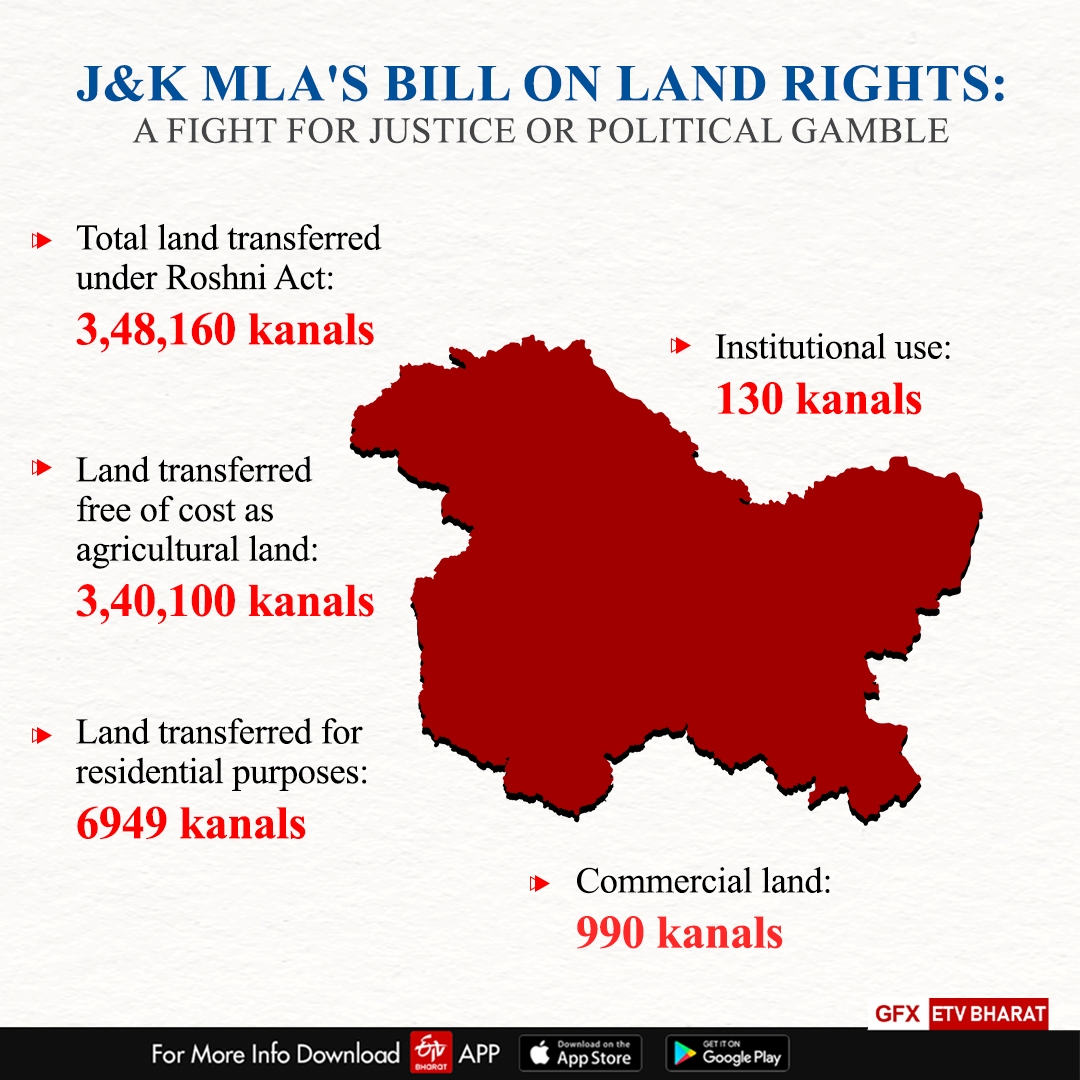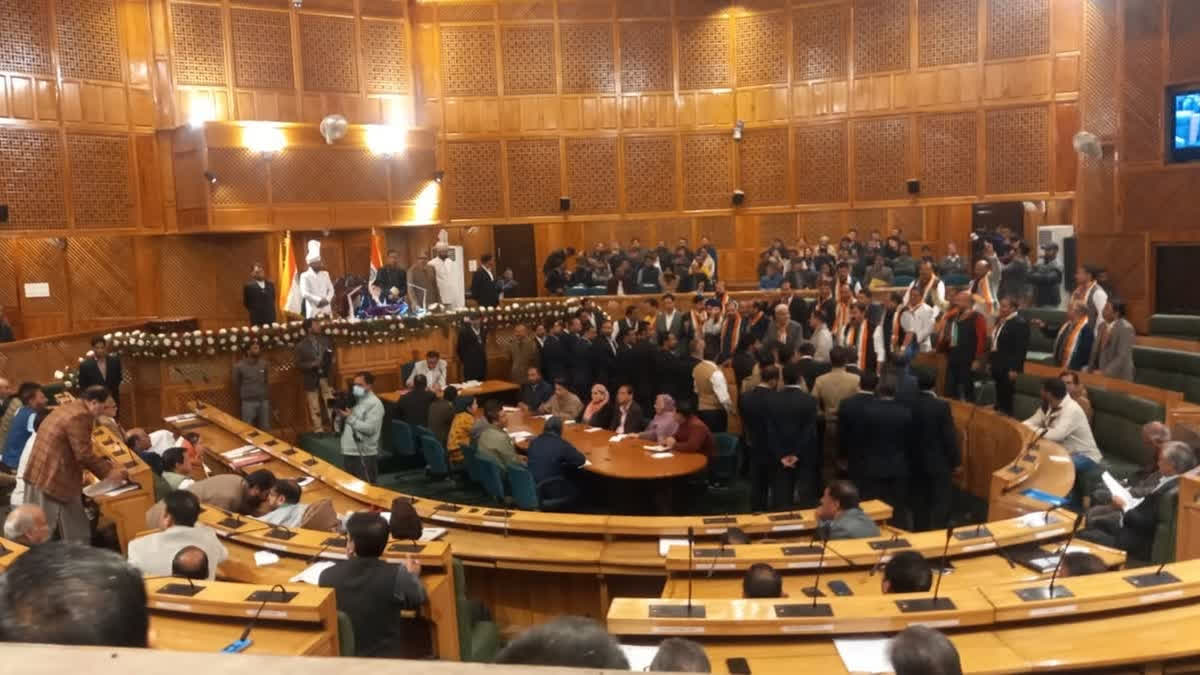Srinagar: More than four decades ago, the Jammu and Kashmir Legislative Assembly passed a bill granting permits for resettlement of people who migrated to Pakistan between 1947 and 1954. Though the National Conference introduced legislation secured a majority, it remained entangled in legal disputes and was ultimately rendered irrelevant when the erstwhile state was demoted and split into two Union Territories in 2019.
Now in 2025, the maiden budget session of the Legislative Assembly with demoted powers is set to debate on a series of private bills subject to vetting by the J&K Law Department. Among them a proposal bill submitted by Peoples Democratic Party (PDP) legislator Waheed Ur Rehman Parra seeks to legalise property rights for residents settled on state land, kacharai, common land and shamilat.
The bill closely mirrors the State Land Act (vesting of ownership to occupant), 2001, commonly called the Roshni Act struck down by the High Court of Jammu and Kashmir and Ladakh on October 9, 2020. It declared the Act ‘unconstitutional’, and ordered a CBI probe into wrongdoing by officials in implementing the Act. All allotments under the Act were declared 'void ab initio from [the Act’s] very inception'.
Enacted by former chief minister Farooq Abdullah in 2001, the Roshni Act had allowed the Jammu & Kashmir government to grant ownership rights to unauthorised occupants of state land till 1990. The government projected a revenue of Rs 25,448 crore from land transfers, intending to use the funds for power projects. But a report by the Comptroller and Auditor General (CAG) of India in 2014 disclosed only Rs 76.24 crore was raised, highlighting gross irregularities.

The proposed bill by Parra now proposes a one-time ownership grant specifically for residential properties excluding commercial structures to permanent residents as existed before the abrogation of Article 370 in 2019. Parra argues the bill is aimed to provide legal security cover to residents facing eviction in the face of change in land laws.
He claims that the legislative assembly is competent to push the Lieutenant Governor to give a nod to the Bill once passed by the majority in the House. Unlike the erstwhile House, any bill even if passed by the majority requires Lieutenant Governor’s nod. The J&K Reorganisation Act allows the LG powers to either uphold or reserve his approval or send it to the President.
"That is another issue if it turns into a legal issue. Even if struck down by a court, it will send out a message that the government stands with people and will decriminalise people who are at the risk of eviction," Parra told ETV Bharat.
But the legal experts and political opponents are unconvinced. Advocate Ankur Sharma, who challenged the Roshni Act in the High Court, dismisses the bill as a ‘gimmick’ lacking legislative significance.
He argues that the land in question remains with occupants despite the Act annulment and the legal work including J&K Reforms Act 1971 and two government orders in 1965 and 1971 already vests ownership rights to occupants.
The court declared the law unconstitutional but a review petition by the Governor-led administration in December 2020 seeking amendment to the verdict is pending. To note, majority of Roshni beneficiaries are from Jammu, the BJP’s core constituency which swept the J&K legislative assembly elections in 2024 winning 29 seats.
Legal experts like Jammu & Kashmir’s Former Advocate General Ishaq Qadri are also sceptical. He concedes that the Assembly lacks mandate without LG's approval and the private member bill has rarely sailed through. Calling the move as a political move by the PDP, Qadri suggests the party is trying to regain lost ground through such a ‘gimmick’.
"The government has filed a review petition against the Roshni verdict. Yet, a legislator proposing a new law is a ploy to mislead people," he said, drawing comparisons between Parra’s proposal and the Resettlement bill which he defended on behalf of the state. Likewise, Qadri believes Parra’s bill may have succeeded in stirring debate but is very unlikely to become law. "The focus should be on restoration of statehood rather than legislation which lacks meaning due to review petition," he added.



